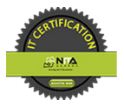In the competitive landscape of manufacturing, maintaining high-quality standards is paramount to success. Every product that leaves the production line must meet stringent quality requirements to satisfy customer expectations and uphold the reputation of the brand. In this pursuit of excellence, manufacturers are increasingly turning to Inspection Management Systems to streamline quality control processes and ensure consistent product quality.
The Importance of Quality Control in Manufacturing
Quality control in manufacturing involves monitoring and evaluating the production process to identify and correct any deviations or defects that may occur. By implementing robust quality control measures, manufacturers can:
- Meet Customer Expectations: Customers expect products that are free from defects and meet their specifications. Quality control ensures that each product meets these expectations, leading to higher customer satisfaction and loyalty.
- Enhance Brand Reputation: Consistently delivering high-quality products builds trust and credibility in the brand. A positive reputation for quality can differentiate a manufacturer from competitors and attract new customers.
- Reduce Costs: Quality control helps identify and rectify defects early in the production process, reducing the likelihood of costly rework, scrap, or warranty claims. This leads to improved efficiency and cost savings in the long run.
Introducing Inspection Management Systems
Traditionally, quality control in manufacturing relied heavily on manual inspection processes, which were time-consuming, prone to errors, and lacked real-time visibility into quality metrics. Inspection Management Systems (IMS) have revolutionized quality control by digitizing and automating inspection processes, enabling manufacturers to:
- Standardize Inspection Procedures: IMS allows manufacturers to create standardized inspection checklists and procedures that ensure consistency across production lines and facilities. This standardization minimizes variability and ensures that all critical quality parameters are evaluated consistently.
- Real-time Monitoring and Reporting: With IMS, inspectors can input inspection data directly into the system using mobile devices or tablets on the shop floor. This enables real-time monitoring of quality metrics and immediate visibility into any deviations or non-conformities.
- Data-driven Decision-making: IMS collects and analyzes inspection data to identify trends, patterns, and areas for improvement. Manufacturers can leverage this data to make informed decisions, optimize processes, and drive continuous improvement initiatives.
- Integration with Manufacturing Systems: Integration with other manufacturing systems, such as Enterprise Resource Planning (ERP) or Manufacturing Execution Systems (MES), allows seamless data exchange and ensures that quality control is integrated into the broader production workflow.
Benefits of Inspection Management Systems
Implementing an Inspection Management System offers numerous benefits for manufacturers, including:
- Increased Efficiency: By streamlining inspection processes and eliminating manual paperwork, IMS reduce inspection times and improves overall efficiency.
- Improved Accuracy: Real-time data entry and validation minimize errors and discrepancies in inspection reports, leading to improved data accuracy.
- Enhanced Visibility: Managers gain real-time visibility into quality metrics, allowing them to quickly identify and address any quality issues as they arise.
- Cost Savings: By reducing defects and rework, manufacturers realize cost savings associated with scrap, warranty claims, and customer returns.
- Regulatory Compliance: IMS helps ensure compliance with industry regulations and standards by enforcing standardized inspection procedures and documentation.
Final Thoughts: Embracing Quality Excellence with Inspection Management Systems
In today’s competitive manufacturing landscape, quality excellence is non-negotiable. Inspection Management Systems empower manufacturers to achieve and maintain high-quality standards by digitizing and automating quality control processes. By standardizing procedures, enabling real-time monitoring, and facilitating data-driven decision-making, IMS drives efficiency, improves product quality, and enhances customer satisfaction. As manufacturers embrace digital transformation, Inspection Management Systems emerge as indispensable tools for ensuring quality control in manufacturing.











